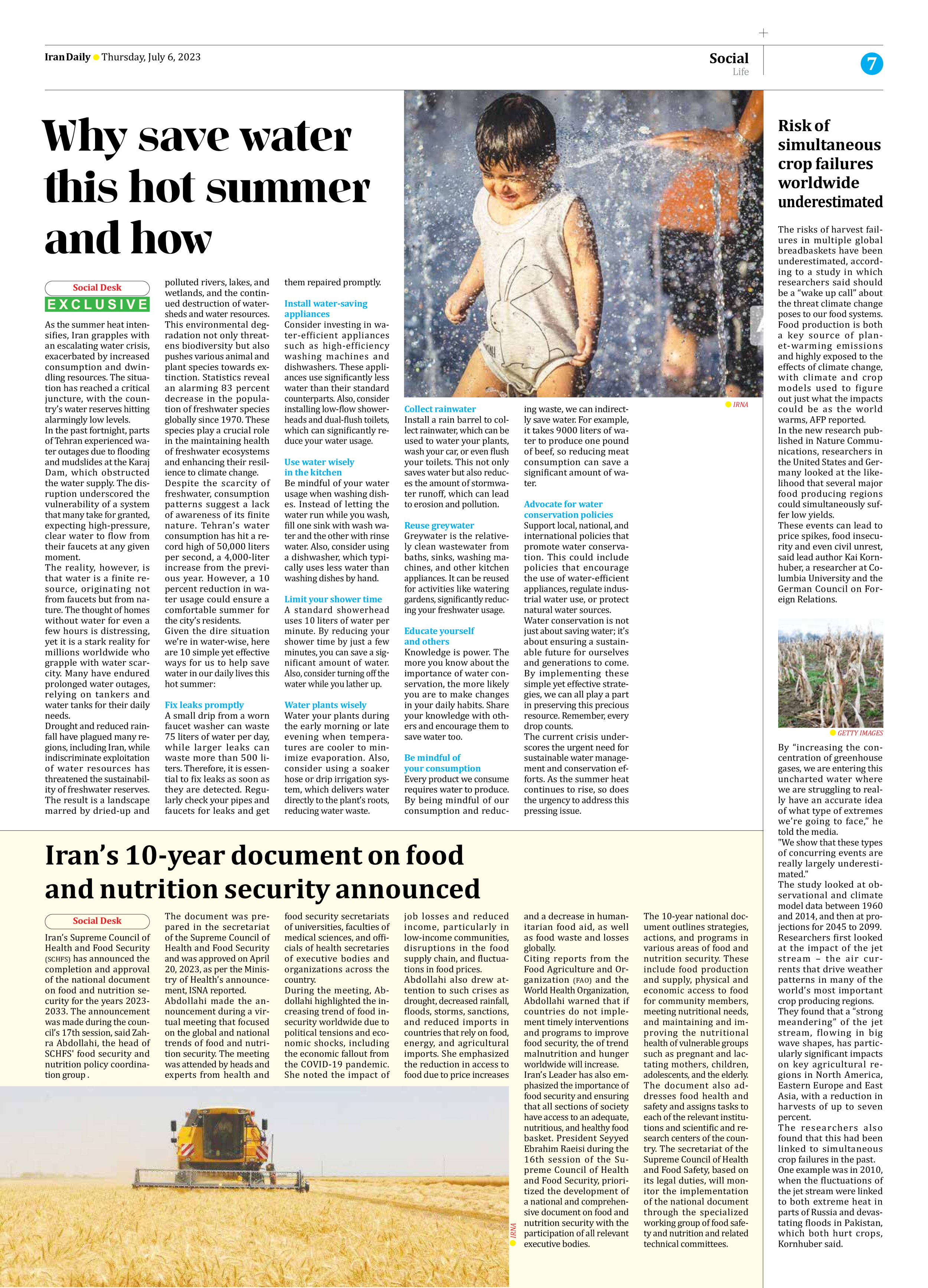
Iran’s 10-year document on food and nutrition security announced
Iran’s Supreme Council of Health and Food Security (SCHFS) has announced the completion and approval of the national document on food and nutrition security for the years 2023-2033. The announcement was made during the council’s 17th session, said Zahra Abdollahi, the head of SCHFS' food security and nutrition policy coordination group .
The document was prepared in the secretariat of the Supreme Council of Health and Food Security and was approved on April 20, 2023, as per the Ministry of Health’s announcement, ISNA reported.
Abdollahi made the announcement during a virtual meeting that focused on the global and national trends of food and nutrition security. The meeting was attended by heads and experts from health and food security secretariats of universities, faculties of medical sciences, and officials of health secretaries of executive bodies and organizations across the country.
During the meeting, Abdollahi highlighted the increasing trend of food insecurity worldwide due to political tensions and economic shocks, including the economic fallout from the COVID-19 pandemic. She noted the impact of job losses and reduced income, particularly in low-income communities, disruptions in the food supply chain, and fluctuations in food prices.
Abdollahi also drew attention to such crises as drought, decreased rainfall, floods, storms, sanctions, and reduced imports in countries that rely on food, energy, and agricultural imports. She emphasized the reduction in access to food due to price increases and a decrease in humanitarian food aid, as well as food waste and losses globally.
Citing reports from the Food Agriculture and Organization (FAO) and the World Health Organization, Abdollahi warned that if countries do not implement timely interventions and programs to improve food security, the of trend malnutrition and hunger worldwide will increase.
Iran’s Leader has also emphasized the importance of food security and ensuring that all sections of society have access to an adequate, nutritious, and healthy food basket. President Seyyed Ebrahim Raeisi during the 16th session of the Supreme Council of Health and Food Security, prioritized the development of a national and comprehensive document on food and nutrition security with the participation of all relevant executive bodies.
The 10-year national document outlines strategies, actions, and programs in various areas of food and nutrition security. These include food production and supply, physical and economic access to food for community members, meeting nutritional needs, and maintaining and improving the nutritional health of vulnerable groups such as pregnant and lactating mothers, children, adolescents, and the elderly.
The document also addresses food health and safety and assigns tasks to each of the relevant institutions and scientific and research centers of the country. The secretariat of the Supreme Council of Health and Food Safety, based on its legal duties, will monitor the implementation of the national document through the specialized working group of food safety and nutrition and related technical committees.







